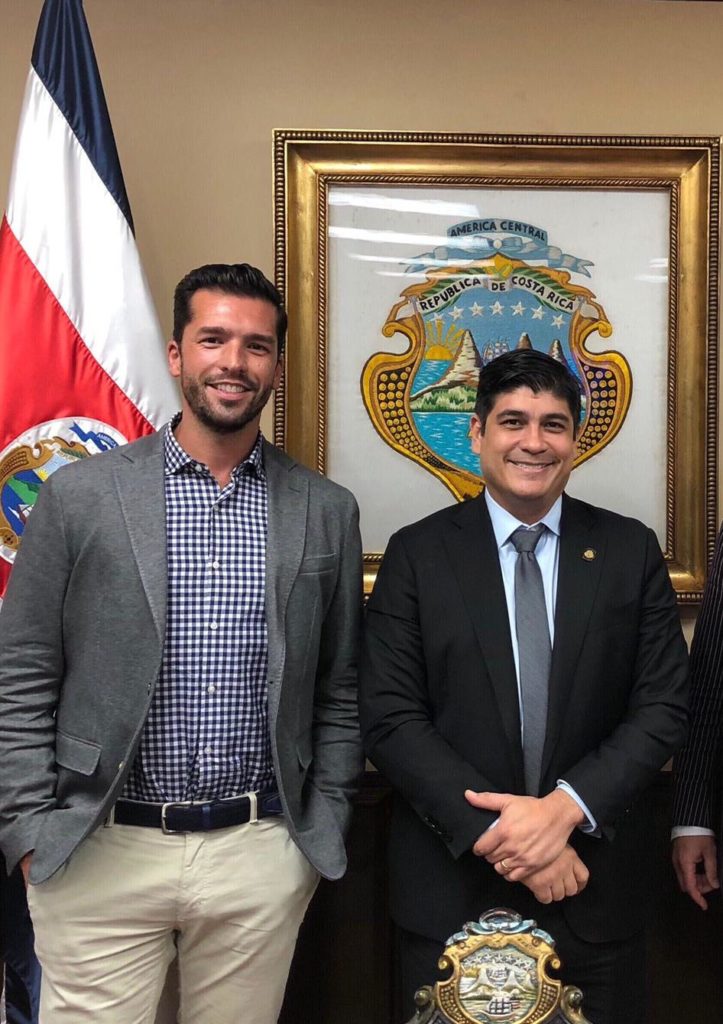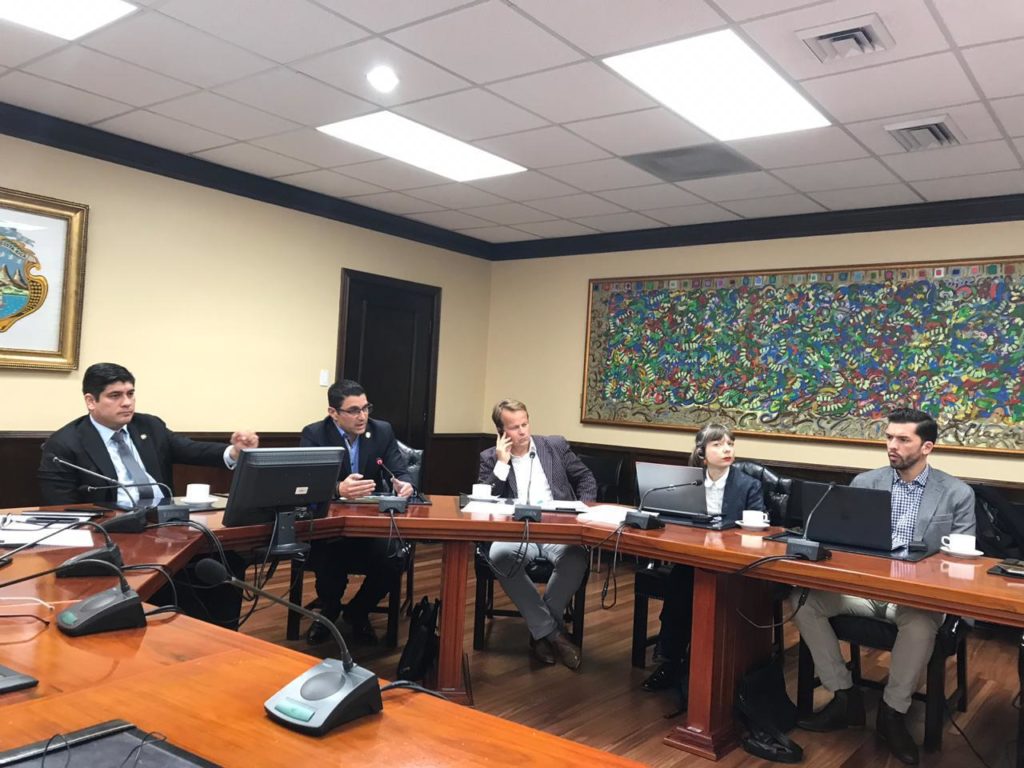News: Decarbonising Costa Rica, discussions with President Carlos Alvarado Quesada
31 July 2019, Ben Bartle, Category: All insights, News, Tags: biogas, climate change, climateaction, costa rica, energy, mitigation, NAMA, noplanetb, sgds, sustainability, sustainabledevelopment, UNFCCC, waste management

I had the honour of meeting the very pragmatic President of Costa Rica, Carlos Alvarado Quesada, on the 23rd of July 2019. It was inspiring to hear about the country’s plan to move away from fossil fuels and decarbonise the economy. Costa Rica can be an example of what can be done, a success story to contrast with the bleakness of climate projections.
We discussed the country’s planned waste sector Nationally Appropriate Mitigation Action (NAMA) and a mitigation project that will target the organic component of the waste stream. The project will address methane emissions from organic waste through active gas capture at landfills and biological treatment through composting centres and biogas plants. The biogas plants will turn methane emissions into electricity and generate income from sales of digestate and electricity.
Costa Rica’s climate ambitions

The planet needs a climate success story, and Alvarado wants to help write it. “We can be that example – we have to inspire people.”
Costa Rica has aspirations to set an example on the international stage. The aim is to go carbon neutral by 2050. Environment minister, Carlos Manuel Rodríguez, said that if the plan is achieved, by 2035, his grandchildren will have the same carbon footprint as his grandparents did in the 1940s.
They aim to reduce emissions while still growing economically. Each sector needs to be managed sustainably to ensure that this plan succeeds. Some goals will be more difficult than others, for example, such as providing all buses and taxis run on electricity by 2050. The changes will be expensive.
There are four main focus areas highlighted in their plan:
- Transport and sustainable mobility
- Energy, green building and industry
- Integrated waste management
- Agriculture, land use and nature-based solutions
The plan also highlights 8 cross-cutting strategies to catalyse change, which focuses on intersections between social, financial, environmental and technological considerations. The strategies cover human rights, a green tax reform, finance and foreign direct investment, labour for a just transition and education and culture to inform consumers.
As discussed at the Ashden Awards last month, the key to achieving climate justice is to create solutions that leave no one behind. I look forward to seeing Costa Rica meet their climate ambitions for a better future and set an example for others to follow.
Ben Bartle
Join the conversation by posting a comment below. You can either use your social account, by clicking on the corresponding icons or simply fill in the form below. All comments are moderated.